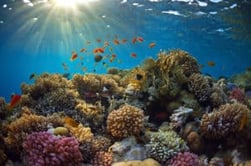In a recent NY Times op-ed piece , Jack Andraka commented on the current state of how science is taught in the classroom. Jack Andraka is most famously known for being a high school student that developed a test that detects pancreatic cancer at a very early stage. Most of what he said is on point and got me thinking about my own classroom. If you know me you know me you know that I’m not one to complain. I generally have a positive outlook, especially when it comes to my career. There are some notable points that he mentioned that I would like to comment on though.
Currently, science classes typically consist of banal consumption and regurgitation of facts. However this model for science education is simply not effective because it skews students’ perception of what science truly is. Science is something that you do, not something that you learn from a textbook.
Unfortunately, I feel like this is a true statement. I believe that the root of this problem goes back to the emphasis placed on standardized tests. This is my first year in a state tested grade and the pressure to succeed is immense. Part of that pressure comes from the school and district but much of it comes from within. I simply don’t want to have poor test scores and then have to justify that my approach to teaching science was actually better for students long-term. That argument isn’t going to get me anywhere with the administration whether it’s right or wrong. We certainly do our fair share of inquiry based activities, but at the end of the day there is a lot of memorizing of information of information that is taught in class. It’s the part of the job that keeps me up at night. I believe in standardization and I also believe in accountability, but those two things shouldn’t trump a genuine learning experience.
On the other hand, it simply isn’t possible to do a lab every day in class. As a teacher of about 140 eighth graders I would probably be pulling my hair out after the first month of doing so. Labs take a lot of work, require a lot of setup, and potentially cost a significant amount of money. Even cheaper labs that require a few items from Wal-Mart can add up very quickly when you’re talking about doing them with a class of 275. I’m in a smaller school district. Students sometimes forget that connections do need to be made from the learning that happens in the lab. I’ll be very transparent and say that sometimes students don’t make any connections at all from the lab because they weren’t focused or simply didn’t care about it. There are times when I wonder if doing a particular lab even had an impact on the students. Not everyone loves science and that’s OK. It does become a a challenge when you are facilitating a lab and have to focus more on middle school problems rather than the actual science.
Come to think about it I would love to have an elective class that was nothing but labs and hands-on learning for those students that were interested in science as a passion. I think that’s a missed opportunity.
Secondly, I feel like the class sizes have gotten out of control in some cases. Both of my honors science classes hover around the 30 students per class, and we are jam packed into a tiny science room. Moving around the room is simply not possible in those classes. I do have several classes that are under 20 and I feel that the students get so much more out of those classes because of the interaction that we can have with each other. I want to point out that I’m not in a unique situation. This is happening in science classes all over the country.
Despite the issues that I have with science education I love my job immensely. I can’t think of anything else that I would want to be doing and feel like I have a true connection with most of my students. At the end of the year I want my students to leave with experiences and information that they didn’t have before they came into my class. If those things are happening then I’m a pretty happy guy.
On the side I run a podcast called EduAllStars that interviews difference makers in education. Jack Andraka was a guest on our show and you can watch that interview below.
Download Over $100 in FREE Resources
For Middle School Science
Simply create a login below and gain immediate access to a selection of our Kesler Science product line worth $100 - for FREE. There's a full version of every product type! You'll also join tens of thousands of middle school science teachers who receive timely tips and strategies straight to their inbox.




